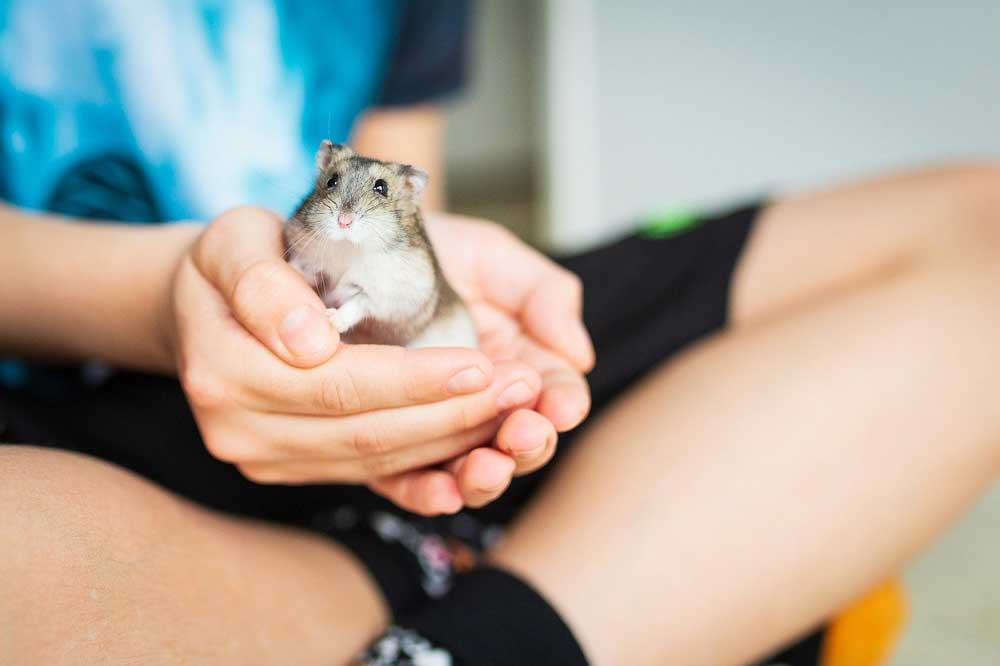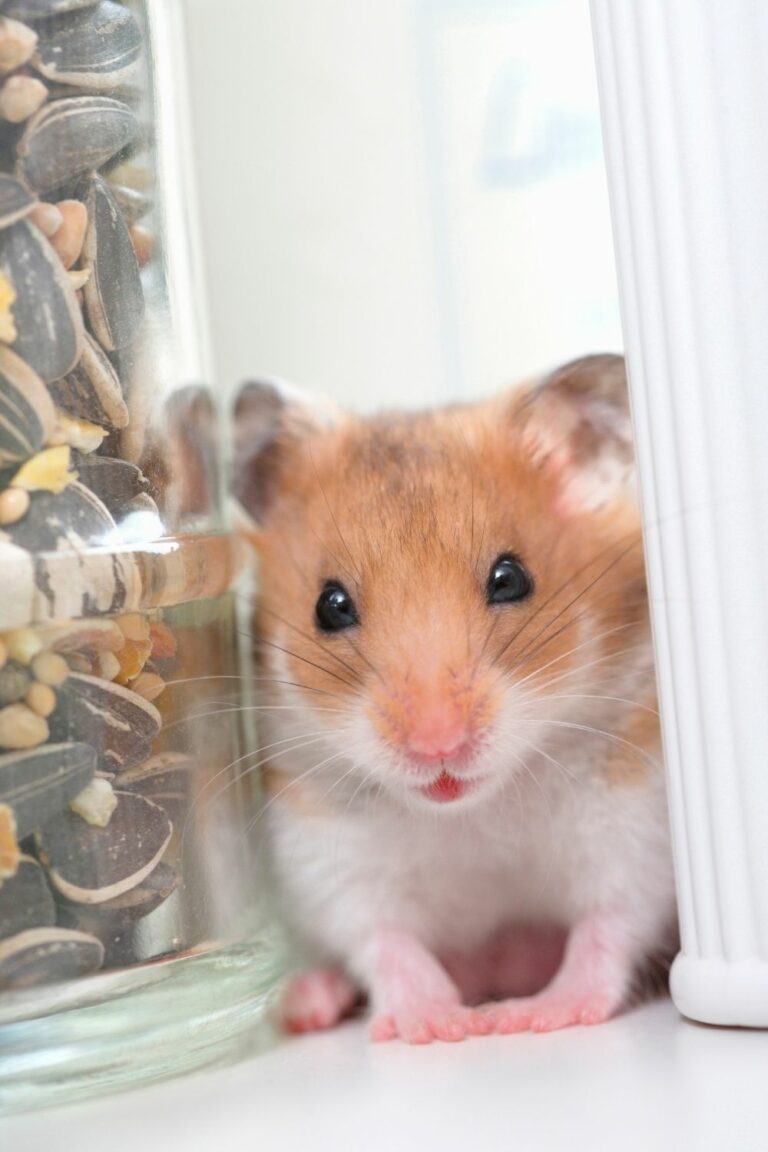Are Hamsters Hypoallergenic? [The Truth!]
Hamsters charm people with their tiny size, cute facial features, and playful personalities. They are popular pets, but some people hesitate to adopt one because they think that the hamster will trigger allergies.
In this blog post, we talk about hamster petting and whether or not these pets are hypoallergenic.
Unfortunately, hamsters are not hypoallergenic. In fact, the fur, dander, saliva, and urine of hamsters can even worsen some people’s allergies.
Could You Be Allergic to Hamsters?
If you categorize yourself under one of the following groups, then you could be allergic to hamsters.
Asthmatic People
People with asthma or dust allergies will have trouble breathing if they are in close contact with hamsters because their fur carries various allergens that can irritate the respiratory system and exacerbate these conditions. These factors contribute to an accumulation of allergens within the air, which makes it difficult for people who suffer from sensitivities.
People with Allergies to Furry Animals
Hamsters can trigger allergies in people who are allergic to furry animals. This is because hamster fur carries certain allergens that can cause a reaction in those with sensitive immune systems.
People with Sensitive Skin
Though rare, some people’s skin reacts badly to the dander, saliva, and urine of hamsters. The resulting rashes, swelling, and itchiness only get worse when the person is in close contact with hamsters, making hamster ownership impossible.
People with Pre-Existing Conditions
Those people with conditions like eczema, asthma, and hay fever may have higher risks of developing allergies to hamsters. Make sure to consult your doctor before petting a hamster if you have these pre-existing conditions.

What Causes Allergic Reactions?
Fur
Hamster fur is known to be a common source of allergic reactions. It may cause a runny nose, itchy and watery eyes, sneezing, asthma symptoms, skin rashes, or hives in people who are allergic.
Dander
Dander is the dead skin that hamsters shed constantly. It can trigger asthma and hay fever symptoms.
Saliva
The saliva of hamsters can also trigger allergic reactions in some people. Constant contact with a hamster via kissing or snuggling can allow saliva to enter the body and cause hives, facial swelling, itchy skin rash, and even asthma.
Urine
The urine of hamsters is known to produce strong odors. This may affect the health of those who are sensitive to them.
What are Possible Allergic Reactions?
The symptoms of an allergic reaction to hamsters can vary from one person to another. However, the most common ones are:
- Hives
- Redness or rash on the skin
- Itchy or watery eyes
- Sneezing and runny nose
- Asthma flare-up
Can You Have a Hamster as a Pet Even If You Are Allergic?
Even if you are allergic to hamsters, you can still pet one. Just make sure to do the following.
Consult the doctor.
People with asthma or hay fever should consult their doctors before getting a hamster. They should also take special care to avoid situations where their breathing can be compromised.
Wash hands after contact with the pet.
People with sensitive skin must always wash their hands after touching the hamster and its cage.
Clean the cage regularly.
Hamsters are often cute and cuddly creatures, but their cages must be kept clean to prevent allergens from gathering. Wipe down the cage at least once a week with mild soap or dish soap diluted in water and bleach to keep your hamster healthy.
Final Verdict
Unfortunately, hamsters are not hypoallergenic. They may be cute and cuddly, but they can trigger allergies in certain people. The best way to avoid the risks associated with owning a hamster is to consult your doctor before getting one.
Even with allergies, you can still own one if you use common-sense practices to minimize contact with the hamster. Keep your hamster’s cage clean, wash your hands after handling it, and avoid kissing or snuggling it to prevent allergic reactions.







